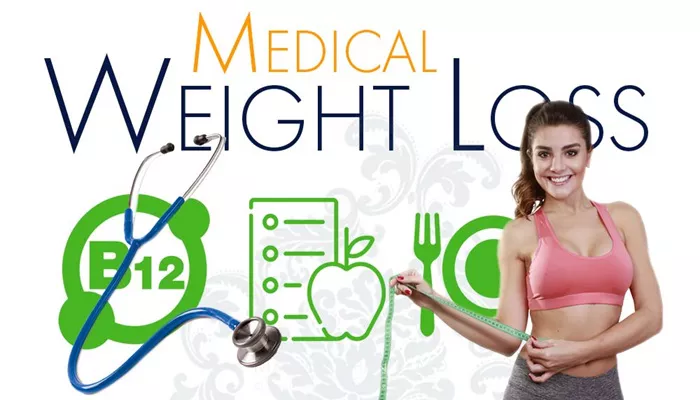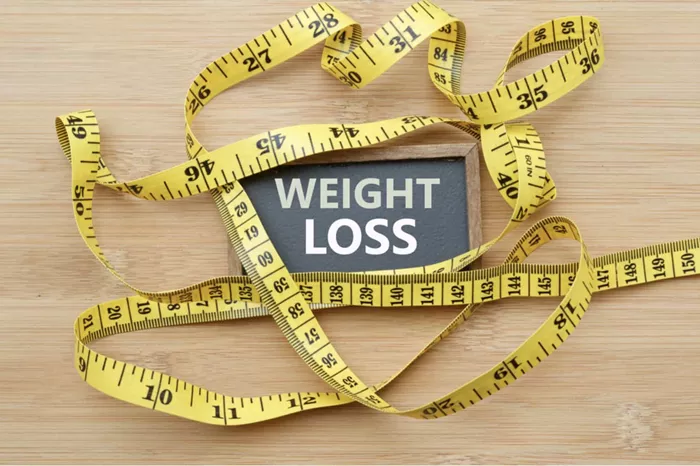Medical weight loss involves a structured approach to weight loss under the supervision of healthcare professionals. This may include medical assessments, prescription medications, dietary counseling, and personalized exercise programs. It focuses on safe, sustainable weight management for individuals with medical conditions that complicate weight loss, providing a tailored plan for each patient.
5 Best Medical Weight Loss Program
1. Medically Supervised Low-Calorie Diet (LCD) Plan
A medically supervised low-calorie diet involves reducing daily calorie intake to a level where the body burns fat for energy while preserving muscle mass. This plan is typically monitored by healthcare professionals to ensure safety and effectiveness.
Key Features:
Caloric Intake: 800–1,200 calories per day
Nutritional Balance: Protein-rich meals to preserve muscle mass, with limited fats and carbohydrates.
Medical Supervision: Regular check-ups with a doctor or dietitian to monitor progress, manage side effects, and adjust the plan if necessary.
Duration: Typically lasts 12-16 weeks, with gradual reintroduction of calories after weight loss goals are met.
Benefits:
Fast and effective weight loss.
Helps reduce obesity-related health risks like diabetes and hypertension.
Considerations:
Not recommended for individuals with certain medical conditions (e.g., liver disease, kidney issues).
Should only be followed under professional supervision.
2. Prescription Weight Loss Medications (e.g., Phentermine, Orlistat)
Prescription medications can support weight loss by either suppressing appetite or blocking fat absorption. These medications should be used in combination with a healthy diet and exercise.
Key Features:
Types of Medications:
Phentermine: A stimulant that suppresses appetite and increases metabolism.
Orlistat: Blocks the absorption of fat in the intestines, reducing overall calorie intake.
Medical Supervision: A healthcare provider will assess suitability, dosage, and monitor for potential side effects.
Duration: Typically prescribed for 6 months or longer, depending on individual weight loss goals.
Benefits:
Can help jump-start weight loss when lifestyle changes alone aren’t effective.
Useful for individuals with significant obesity or weight-related health concerns.
Considerations:
May cause side effects like dry mouth, insomnia, or gastrointestinal discomfort.
Not suitable for people with certain medical conditions (e.g., heart disease or high blood pressure).
3. Bariatric Surgery (Gastric Bypass or Sleeve Gastrectomy)
Bariatric surgery is a more invasive medical option, recommended for individuals with severe obesity (BMI over 40 or over 35 with obesity-related health problems). It involves altering the digestive system to limit food intake or reduce nutrient absorption.
Key Features:
Types of Surgery:
Gastric Bypass: Diverts a portion of the small intestine to limit food intake and absorption.
Sleeve Gastrectomy: Removes a large portion of the stomach, creating a smaller “sleeve” that reduces food consumption.
Post-Surgery Plan: A strict post-operative diet and lifestyle plan, including small meals and nutritional supplementation.
Medical Supervision: Surgery requires a team of medical professionals, including a surgeon, dietitian, and psychologist.
Benefits:
Significant and sustained weight loss.
Improves or resolves many obesity-related health conditions (e.g., type 2 diabetes, sleep apnea).
Considerations:
Requires long-term commitment to a healthy lifestyle post-surgery.
Potential risks include infection, nutrient deficiencies, and complications from surgery.
4. Medical Fasting or Intermittent Fasting (Under Supervision)
Medical fasting or intermittent fasting involves alternating periods of eating and fasting to help the body burn fat for energy. This plan is typically medically supervised for individuals with obesity or metabolic conditions.
Key Features:
Fasting Protocols: Various types of intermittent fasting, such as 16:8 (16 hours fasting, 8 hours eating) or alternate-day fasting.
Supervised Monitoring: Blood tests, medical check-ups, and nutritional assessments are conducted to ensure safe fasting.
Caloric Restriction: During eating windows, individuals typically consume nutrient-dense, low-calorie meals to maintain nutritional balance.
Benefits:
Can promote fat loss while preserving lean muscle mass.
Reduces the risk of metabolic diseases and improves insulin sensitivity.
Considerations:
Fasting may cause initial fatigue, headaches, or irritability.
Should not be attempted by individuals with certain health conditions (e.g., eating disorders, diabetes).
5. Nutritional Counseling and Cognitive Behavioral Therapy (CBT) for Weight Loss
Combining nutritional counseling with behavioral therapy can help address underlying psychological factors that contribute to overeating and poor eating habits. This approach is often used for long-term weight management.
Key Features:
Nutritional Counseling: Focus on balanced, sustainable eating habits, personalized meal planning, and portion control.
Cognitive Behavioral Therapy (CBT): Helps identify and change negative thought patterns that contribute to overeating or emotional eating.
Medical Supervision: Regular sessions with a dietitian and therapist to monitor progress and address challenges.
Benefits:
Addresses the psychological aspects of weight loss, promoting long-term success.
Improves overall mental health and well-being.
Considerations:
Requires time and commitment to therapy and counseling sessions.
May be less effective without additional medical weight loss interventions for severe obesity.
5 Best Medical Weight Loss Diet
1. The Ketogenic Diet
The ketogenic (keto) diet is a high-fat, moderate-protein, and very low-carbohydrate diet designed to put the body into a state of ketosis, where it burns fat for fuel instead of carbohydrates.
How it works: By severely limiting carb intake, the body switches to burning fat for energy. This diet promotes weight loss by reducing appetite and increasing fat oxidation.
Foods to include: Meat, fatty fish, eggs, cheese, nuts, seeds, non-starchy vegetables (spinach, broccoli, etc.).
Foods to avoid: Sugary foods, grains, starchy vegetables, and most fruits.
2. The Mediterranean Diet
The Mediterranean diet is a heart-healthy eating plan based on the traditional foods and beverages of the Mediterranean region, particularly those of Greece and Italy.
How it works: It focuses on whole, plant-based foods, healthy fats, and lean proteins, promoting long-term weight loss and overall health.
Foods to include: Olive oil, nuts, seeds, fruits, vegetables, whole grains, legumes, fish, poultry, and moderate amounts of dairy.
Foods to avoid: Processed foods, refined sugars, and red meat.
3. The DASH Diet (Dietary Approaches to Stop Hypertension)
Originally developed to help lower blood pressure, the DASH diet is rich in nutrients that promote heart health and weight loss. It emphasizes a balanced intake of foods that are high in potassium, calcium, and magnesium.
How it works: The DASH diet encourages reducing sodium intake while focusing on foods high in nutrients that support weight loss, such as lean proteins, fiber, and healthy fats.
Foods to include: Fruits, vegetables, whole grains, lean proteins (poultry, fish, beans), low-fat dairy, and nuts.
Foods to avoid: High-sodium foods, processed snacks, and sugary drinks.
4. Intermittent Fasting
Intermittent fasting (IF) involves cycling between periods of eating and fasting. It doesn’t prescribe what to eat but when to eat, and it’s believed to help regulate metabolism and increase fat burning.
How it works: During the fasting periods, the body uses stored fat for energy, leading to weight loss. Common patterns include fasting for 16 hours and eating within an 8-hour window (16:8 method).
Foods to include: Whole, nutrient-dense foods during eating windows, such as lean proteins, healthy fats, vegetables, and whole grains.
Foods to avoid: High-calorie processed foods, sugary drinks, and overeating during eating windows.
5. The Weight Watchers (WW) Diet
The Weight Watchers program assigns points to foods based on their nutritional value, and participants are encouraged to stay within their allotted daily point limit.
How it works: The program focuses on portion control, healthier food choices, and behavior changes. It provides support through meetings or online groups and offers personalized weight loss plans.
Foods to include: Lean proteins, vegetables, fruits, whole grains, and low-fat dairy.
Foods to avoid: High-calorie, low-nutrient foods, processed snacks, and sugary treats.
Medical Weight Loss Related Posts
FAQs About Medical Weight Loss
1. Is medical weight loss safe?
Yes, medical weight loss can be safe when supervised by a healthcare professional. It involves personalized plans that address individual health needs, but it is important to follow a doctor’s advice to avoid potential risks.
2. Does medical weight loss work?
Yes, medical weight loss can be effective for many people, especially when combined with lifestyle changes such as diet and exercise. Success varies depending on individual factors like metabolism, commitment, and the approach used.
3. What does medical weight loss entail?
Medical weight loss typically involves a customized program that may include prescription medications, meal plans, counseling, and lifestyle changes. It may also include monitoring of health markers like blood pressure and glucose levels.
4. How much does medical weight loss cost?
The cost of medical weight loss varies depending on the program and location. It can range from $100 to several thousand dollars, with some programs involving initial consultations, ongoing treatment, and prescription medications. It’s best to consult with a provider for specific pricing.









